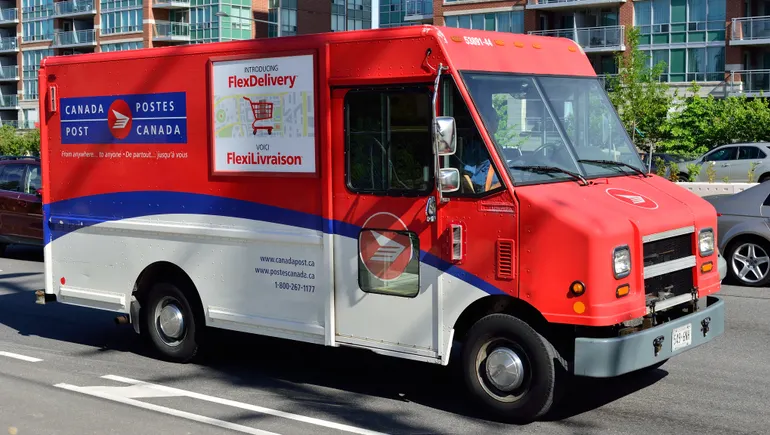
This sound is produced automatically. Please let us know if you have feedback.
The Canadian Post employees, on behalf of the Canadian Post Workers’ Union, rejected two years of offers on a multi -year contract on Friday and extended a period of negotiation and disruption.
Workers presented their vote for Canada’s “final offers” post between July 21 and August 1 as part of a government order process. One contract encompasses urban workers, while the other belongs to rural and suburban mail letters. According to the CUPW Friday statement, each contract was rejected by nearly 70 percent National President John SimpsonHuman
Canada Post said it was “desperate” in the results.
“This outcome does not reduce the urgent need to renovate and protect this critical national service,” the transport company said in a statement. “However, this means uncertainty that has significantly influenced our business – and many Canadians and Canadian jobs depending on Canada will continue. We will evaluate our next steps.”
Simpson said the CUPW members “made it clear that our negotiators have told employers:” These suggestions do not cut it. “
“It is time for Canada to return to the bargaining desk and start negotiating seriously,” the statement said. “Despite these votes behind us, Canada Post now has to determine that the only way to negotiate on collective agreements is acceptable to meet the needs of post workers. The time of games is over.”
In the meantime, the union plans to continue its overtime ban and is also ready to resume negotiations with Canada from each Simpson.
Canada Post for more than 53,000 Canadian post employees, along with operational changes such as introducing centralized weekend delivery workers, proposed a 13.59 % increase in wages for more than 53,000 Canadian posts. CUPW has been opposed to contract suggestions, partly because they refused to the union’s willingness to increase a 19 percent wage.
Rejection of contracts expands the epic of negotiations after the Canadian contract, which is witnessing the peak strike and the overtime prohibition that began in May.
Workers’ disorders during the negotiations have caused transportation to divert volumes to private carriers such as FedEx and UPS. More uncertainty can make the repayment of this business difficult for Canada’s post.
“Yo-Yoing inside and outside the strike, it makes Canada’s small jobs-one of the last profitable-Canada customer groups,” said Dan Kelly. “Small business owners and other consumers need to be assured.”